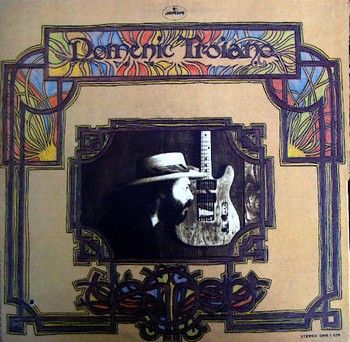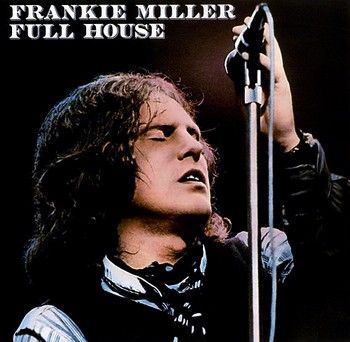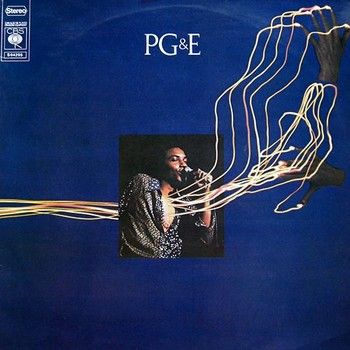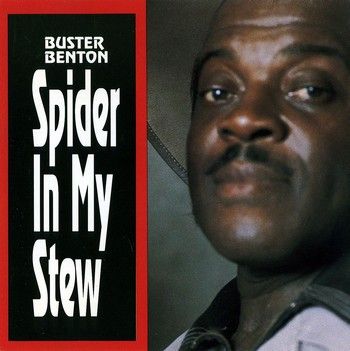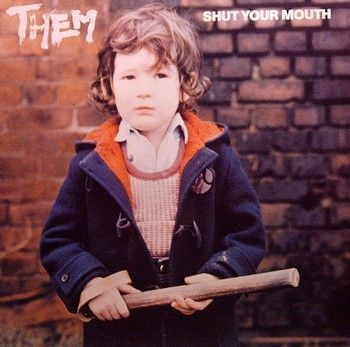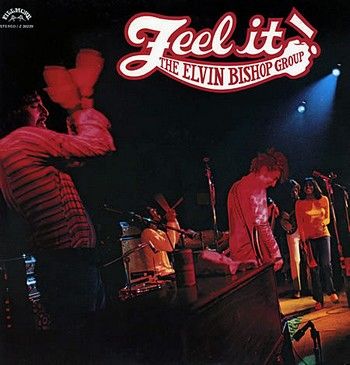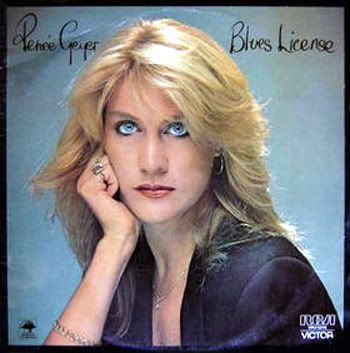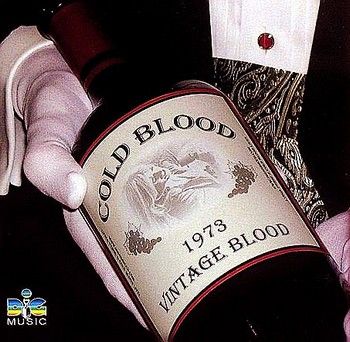
Cold Blood - Vintage Blood: Live! 1973 - 2001 - DIG Music
Many of the greatest groups in rock and roll history have made their home in San Francisco and the surrounding Bay Area. While 'Frisco was at the forefront of the psychedelic music movement spinning around the intersection of Haight and Ashbury, some serious funk was springing up as well. Free-form DJs like Tom Donahue, who coined the term "underground" radio and Abe "Voco" Kesh interspersed hip soul and jazz in between the extended jams of the Dead and Quicksilver in their nightly shows. Sylvester Stewart, aka Sly Stone, was also a noted Bay Area DJ and record producer and an influence on the scene. Latin music was always in the air as well, and bands like Santana. Tower of Power, and Malo vibed to the incantory force of the extended boogaloo. One of the best bands in combining the punch of great rhythm and blues with the hippie aesthetic of brotherhood and freedom was Bay Area's legendary Cold Blood. With the backing of pioneer rock impresario Bill Graham, they won over area audiences almost immediately after their formation in 1968. The Fillmore Auditorium was the epicenter of San Francisco rock, and no better place to see a band "let it all hang out," as many shows ran all night long. The band's first two albums on Bill Graham's San Francisco Records — Cold Blood, released in 1969 and produced by David Rubinson, and Sisyphus, a 1970 release produced by Santana engineer Fred Catero, are excellent representations of a powerhouse band that could really move an audience. They were a winning combination of good songs, excellent covers and the powerful, expressive voice of Lydia Pense, their extraordinarily beautiful lead singer. The reissue of these two LPs is currently available on Collectables (Col-CD-6813). A change in management and a move to Reprise Records in 1972 would see the release of their third album First Taste Of Sin. The twenty-something members of Cold Blood had quite a few years of touring and recording under their belts by now, and while their records did not have the massive com-mercial success of some of their peers, they still had many fans around the country. There were some personnel changes in the group at this time most notably the departure of founding member guitarist. Larry Field. Lydia Pense, their lead singer was still fronting the band. While she had the burden of being compared to Janis Joplin, the preeminent female white soul singer of her day, Lydia's individual style and beauty was continuing to blossom. Another evidence of maturation in the abilities of the group was their choice of budding soul genius Donny Hathaway as producer for First Taste Of Sin. Despite his relative youth, this Chicago-born singer and a songwriter had already received kudos for his work with Curtis Mayfield, Jerry Butler and The Impressions. His reputation in the industry as the next generation's leading soul music auteur was spreading throughout the music industry. Warner Bros, and its sister label Reprise were a stronghold in the Seventies for the production of records of high artistic integrity, that were also a gas to listen to. The combo of Hathaway and Cold Blood produced a sophisticated blend of R and rock that appealed to both soul and progressive crowds.
Hathaway contributed two excellent songs to the album, the slow blues You Had To Know, a showcase for singer Lydia, and Valdez In The Country, as well as his gospel-influenced piano and jazzy organ playing. The presence also of Bay Area session veterans Coke and Pete Escovedo on congas, timbales, and percussion generated fire in the rhythm section with their Third World poly-rhythms. Also beefing up the horn section is noted jazz tenor saxophonist Pete Christieb. A longtime member of Doc Severensen's Tonight Show Band, he was an in-demand session player. A rare cover version of fellow Warner-Reprise artist James Taylor's Low And Behold is an adventurous choice of song, and Cold Blood adapts the tune to their rough and ready rockin' soul style. Cold Blood recorded three more albums in their life span before disbanding in 1976. Thriller was released in 1973 and Lydia in 1974, both also for Warner-Reprise. Their swansong was Lydia Pense and Cold Blood. produced by Stax Records stalwart and respected guitarist/songwriter Steve Cropper for ABC Records. There have been continued rumblings of activity in the Cold Blood camps , so the book may not yet be closed on the contributions of this relatively unheralded group to rock's legacy. Here then is one of Cold Blood's finest endeavors—First Taste Of Sin. - Taken from: booklet "First Taste Of Sin". by & © Al Fichera © www.old-rock.ru - 2009 http://www.old-rock.ru/paleontology_bands/cold_blood_en.html
Cold Blood was on the verge of a musical breakthrough during the early '70s, but the band's inability to write compelling original material or expand their range beyond high-octane, horn-dominated R&B relegated them to second-tier status. The band was at their best on-stage, but curiously never released a live album until this release 30 years past their heyday. Vintage Blood Live! 1973 catches the band at their funkified norm. Recorded at a studio before a small but appreciative audience, this performance emphasizes the groove. Cold Blood hits it quickly and stays there for long stretches, submerging beneath Lydia Pense's powerful R&B voice. Pense, keyboard player Raul Matute, and bassist Rod Ellicott were the only original members remaining in the band. The three-man horn session was filled with newcomers who acquit themselves well. The sound quality is outstanding, and the performances are right on the mark, except for one detour into gospel that falls flat. Cold Blood is stronger when they delve into secular treats such as "Funky on My Back." Followers of the band will enjoy this material. Listeners curious about early-'70s hard rhythm & blues will receive an informative, enjoyable lesson here. Dig Music is a small Sacramento-based label that specializes in releases by Northern California artists of the '60s and '70s, such as the Beau Brummels and Stoneground. © Casey Elston © 2012 Rovi Corporation. All Rights Reserved http://www.allmusic.com/album/vintage-blood-live-1973-r556170/review
Between 1967 and 1977 Lydia Pense was a well known vocalist in the San Francisco/Oakland area. She has been called "the female voice of San Francisco" and was one of the best rock 'n' blues singer of her day. She was produced by Steve "The Colonel" Cropper, guitarist with the legendary Booker T. & The MG's. She temporarily retired from the music scene in the '80s and early '90s, to rear a daughter, but returned with a bang to reform the great soul/jazz rock band Cold Blood, with a new line-up of some talented local Bay Area musicians. If you like BS&T, early Chicago and Tower of Power you may like this 1973 live album from one of the greatest ever Bay Area funk-rock-blues outfits. The album is full of terrific jazz and soul funk grooves, and East Bay Grease at it's best. Hornwork is brilliant and Lydia's vocals are special. Sound quality could be better but normal for a release of this type, and the album is HR by A.O.O.F.C. Try and listen to Lydia Pense's 1974 "Lydia" album, and Cold Blood's 1971 "Sisyphus" album. You can find Lydia Pense & Cold Blood's "Transfusion" album and also Cold Blood's 1969 s/t album on this blog. In September of 2011 Cold Blood released a 5 song EP, "The River City Sessions". Buy it and promote real music. [All tracks @ 320 Kbps: File size = 92.2 Mb]
TRACKS / COMPOSERS
1 Feel So Bad 9:25 - David Porter, Isaac Hayes, James Johnson, Leslie Temple
2 Kissin' My Love 7:27 - Bill Withers
3 I Wish I Knew How It Would Feel To Be Free 7:34 - Billy Taylor, R. Lamb
4 Funky On My Back 12.21 - C. Stolte, D. Hull, L. Field, L. Pense, R. Ellicott, Raul Matute
5 You Got Me Hummin' 5:32 - David Porter, Isaac Hayes
BAND
Michael Sasaki - Guitars
Rod Ellicott - Bass
Raul Matute - Keyboards
Gaylord Birch - Drums
Skip Mesquite - Saxophone
Max Haskett, Jack Walrath - Trumpet
Lydia Pense - Vocals
BIO
Lydia Pense & Cold Blood debuted when the Fillmore was at its peak as one of the nation's musical Meccas. Owner Bill Graham was so impressed with Lydia's voice and the sound of the band that he immediately signed Cold Blood to his new record label. During the span of six original late-60's, early-70's albums, Lydia Pense and Cold Blood helped, along with Tower Of Power, forge their own specific brand of funk/soul and R&B which came to be known as East Bay Grease. That music still holds up today, proving that great music is timeless and will continue to inspire generations to come. Cold Blood is one of the original R&B horn bands from the late 60's/ early 70's that exemplified the "East Bay Grease" melding of funk & rock with blues and jazz elements. Lydia Pense has been compared to Janis Joplin, but is a true original and a pioneer in the women's rock movement. Lydia and the band debuted when the Fillmore was at its peak as one of the nation's musical Meccas. Owner Bill Graham was so impressed with Lydia's voice and the sound of the band that he immediately signed Cold Blood to his new record label. During the span of six original late-60's, early-70's albums, Lydia Pense and Cold Blood helped, along with Tower Of Power, forge their own specific brand of funk/soul and R&B which came to be known as East Bay Grease. That music still holds up today, proving that great music is timeless and will continue to inspire generations to come. Lydia Pense and Cold Blood packed the San Francisco Ballrooms in their heyday, but that was then and this is now. In the now, Lydia Pense and Cold Blood still fill halls with cheering, dancing, foot-stomping fans. Far from fading over the years, Cold Blood has flourished. The word legend certainly applies to Lydia Pense and Cold Blood…and not in some past tense-make-a-living-as-an-oldies-act sort of way either. Pense can still shout like a 60's soul diva and purr a slow blues tune with spine-tingling subtlety. Cold Blood, as a whole, features a stellar group of musicians who have been playing together for nearly 20 years including Steve Dunne on guitar, Steve Salinas on keyboards, a gritty-growling horn section comprised of Rich Armstrong and Rob Zuckerman along with a stellar rhythm section featuring Evan Palmerston on bass and Donny Baldwin on drums. The band members are all veteran Bay Area musicians who have played with many great artists including Elvin Bishop, Jefferson Starship, Boz Skaggs, Albert Collins and more. Of course there is Lydia who still has the chops with the patina of a seasoned veteran who's done and seen it all. Together she and the band continue to twist together R&B, (both Old School and New School); into something that doesn't have a label... On any given night, Lydia Pense and Cold Blood power through their historic essentials, like "You Got Me Hummin'," "I Just Want To Make Love To You," "I'm A Good Woman," and "Down to the Bone." In 2005 the band released “Transfusion” a whole new CD of future classics that draws on their heritage but is not stifled by the past. In September of 2011 the band has released “The River City Sessions”, a 5 song EP. Now able to draw from the first two new Cold Blood albums in three decades, Lydia and the band blast out a set that covers 40 years of thumping, throbbing, East Bay funk. Several of the tracks that make it on to the set list each night come from original Cold Blood alum Skip Mesquite. Another tune of particular note, "Face the Music," is written by guitar ace Steve Dunne. All this fresh music, laid down by a crisp, tight 6-piece, makes any Cold Blood show invigorating. And, of course, anything Lydia sings is sung well. She has a list of famous admirers that includes Bonnie Raitt, Michelle Shocked, David Lee Roth, even Janis Joplin back in the day. It's been a long road, over 40 years to be exact with a break somewhere in the middle. But, Lydia and the band are living proof that a little time off can be a really good thing. With their new CD, “The River City Sessions” turning heads across the country, fans are remembering just what has been missing from music in the last few decades. These songs exemplify how a performer can take great strides forward, without forgetting her roots. Cold Blood is booking dozens of shows across the country, entertaining generations of club, theatre and festival goers. Cold Blood has been blessed with the ability to reach backwards for original influences and the creativity to reach forward, working with new approaches. The music they play is ageless, and can still fill any room to the rafters. © http://www.sonicbids.com/2/EPK/?epk_id=289950#bio
SHORT BIO
A San Francisco-based R&B band originally formed by guitarist Larry Field as the "New Invaders" in the wake of the Summer of Love, Cold Blood had the key elements of strong female vocalist, a fine guitarist, and a powerful horn section. After successful gigs at Golden Gate Park and at the Fillmore, they were signed by impresario Bill Graham to his new San Francisco Records label, on which they released their self-titled debut in 1969. Four more albums followed over the next five years -- in fact, later efforts boasted the production and musical contributions of Steve Cropper -- but all were hamstrung by Graham's underhanded distribution deals with Columbia and Atlantic. Though the debut's single "You've Got Me Humming" crawled up to number 52 on the American charts, Cold Blood seemed doomed to labor in the shadow of bands like Tower of Power, Chicago, and especially Janis Joplin. The latter comparison became endemic among critics; for although blues belter joined Field's band as its youngest member -- she had formerly been, of all things, a childhood national rollerskating champion -- her magnetic stage presence established her as the band's central force. Eventually, the band billed itself as Lydia Pense With Cold Blood, and even released an album simply titled Lydia. Joplin sensed a kindred soul; after screaming at Cold Blood for scooping her on a blistering cover of "Piece of My Heart," she warmed to Pense enough to give her a swig of Southern Comfort. After hitting increasingly lower tier venues in San Francisco by the late '70s, Cold Blood disbanded for most of the next decade; Pense focused her energies on child rearing. By the late '80s, the band slowly awoke from its long sleep, and they began regular features on California's festival and fair circuit. A 1998 return to their Fillmore stomping ground brought out the band's faithful. © Paul Collins © 2012 Rovi Corporation. All Rights Reserved http://www.allmusic.com/artist/cold-blood-p16571/biography
ABOUT LYDIA PENSE (WIKIPEDIA)
Lydia Pense (born Lydia Jane Pense in San Francisco, California on December 14, 1947) is an American rock-soul-jazz singer who since 1969 has performed with the band Cold Blood. Her style has been compared to powerful singers including Janis Joplin (who recommended the band to Bill Graham for their first audition), Aretha Franklin and Teena Marie. Pense's mother, the former is Miss Ramos, was born in Madrid, Spain, while her father came from Nebraska, United States. While attending Sequoia High School in Redwood City, California at the age of 16, Pense started singing with a band called The Dimensions, With Guitarist Paul C Saenz. They initially played Big Band songs, but she soon was attracted to the music of Ray Charles and Chuck Berry. Lydia joined Cold Blood in 1968. Their initial four albums, Cold Blood, Sisyphus, First Taste of Sin (produced by Donny Hathaway), and Thriller remain their best known work. The band continues to record and perform today. The band separated in the late 1970s and Pense suspended her career in the 1980s to raise her daughter before re-forming the group.
COLD BLOOD BIO (WIKIPEDIA)
Cold Blood is a long-standing soul-rock-jazz band founded by Larry Field in 1968 and originally based in the San Francisco East Bay area. They have also gone by the name "Lydia Pense and Cold Blood" due to the popularity of their lead singer, Lydia Pense. The band first came to prominence in 1969 when rock impresario Bill Graham signed them after an audition and they played the Fillmore West in San Francisco. Pense has been compared to Janis Joplin, and it was Joplin who recommended the audition to Graham. The band has often been compared to another long-standing popular Northern California group, Tower of Power, and like Tower of Power they were rare in that they featured a horn section in addition to guitar, bass and drums. The Tower of Power horn players have performed with Cold Blood on a regular basis since the early 1970s. Skip Mesquite and Mic Gillette have been members of both Tower Of Power and Cold Blood. Their fan base also overlaps with the Sons of Champlin, although their musical styles are quite different. Their initial four albums, Cold Blood, Sisyphus, First Taste of Sin (produced by Donny Hathaway), and Thriller remain their best known work. The band disbanded in the late 1970s, reformed in the 1980s and stabilized with its current membership in the 1990s. Cold Blood continues to record and perform today, and some former band members such as Raul Matute (and some from Tower of Power) appear on its most recent album. Original band members were founder Larry Field (lead guitar), Lydia Pense (vocals), Danny Hull (tenor saxophone and songwriter), Larry Jonutz (trumpet), Raul Matute (Hammond organ, piano, arranger and songwriter), Jerry Jonutz (Baritone, alto and tenor saxophone), David Padron (trumpet), Rod Ellicott (bass), Paul C Saenz (Guitar), and Frank Davis, who was replaced on drums by the legendary Sandy McKee during the Sisyphus sessions. Narada Michael Walden and Jonathan "Sugarfoot" Moffett both mention McKee on their short list of drummers most influential in their stylistic development. Over the years there have been various incarnations of the band including singer/trumpet player Max Haskett, Tower Of Power horn player Mic Gillette, Journey keyboardist Stevie "Keys" Roseman on Hammond B-3 organ, Sons Of Champlin drummer Jim Preston, guitar player Michael Sasaki, Tower Of Power guitarist Jeff Tamelier, Boz Scaggs horn player Tom Poole, Elvin Bishop sax player Bill Slais, bass player Michael White & others. Current personnel are Lydia Pense (vocals), Steve Salinas (keyboards), Steve Dunne (guitar), Mike Morgan (percussion), Evan Palmerston (bass), Rich Armstrong (trumpet, percussion), Rob Zuckerman (alto, tenor, baritone saxes) and Donny Baldwin (drums). Cold Blood is featured playing live in Fillmore, a documentary of the last concerts at The Fillmore auditorium.


